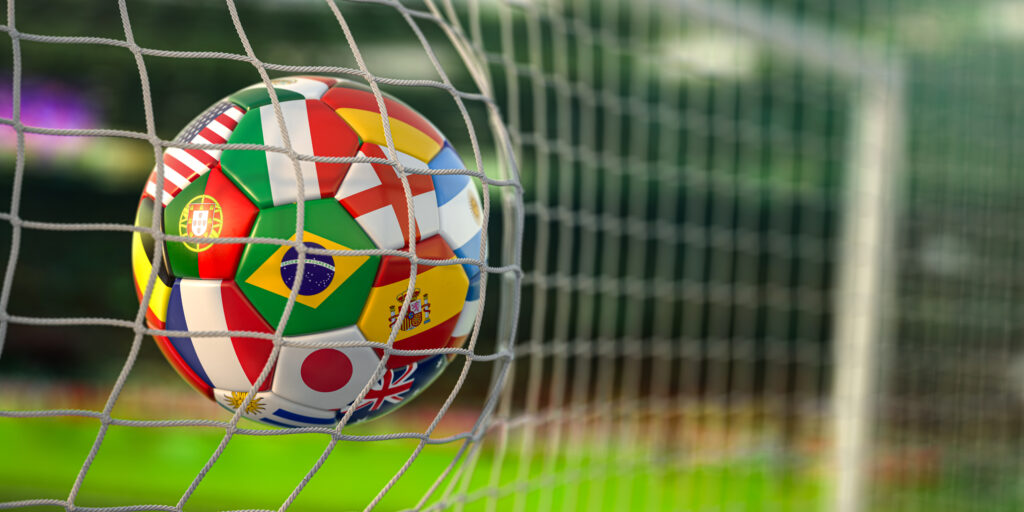
The first-ever winter FIFA World Cup starts in a matter of days. The anticipation for kickoff is heightening around the globe. But who will prevail as winners?
At Hogan, we recommend using science to predict performance. However, we wanted to explore other methods that people use to forecast the performance of World Cup teams. One method that stood out was the use of “oracle” animals, who supposedly prophesy the winners of World Cup matches.
This is certainly a cute and amusing way to choose the winners of games. But how often does it work? Because we recommend using scientific methods to predict performance, we decided to assess the animals' accuracy.
Using Oracle Animals to Predict World Cup Winners
Let’s explore just how often the oracle animals made accurate predictions.
Paul the Octopus (Germany)
During the 2010 World Cup, this Germany-based octopus would predict the outcome of football/soccer matches by choosing between two boxes containing flags that were positioned in his tank.1
Accuracy: 85.7%
Nelly the Elephant (Germany)
Another Germany-based animal demonstrated the ability to take penalties (with more success than the English national team). She made predictions by shooting into one of two empty nets in which hung the flags of the competing countries.1
Accuracy: 90%
Ying Mei the Giant Panda (China)
China had a panda who was intended to predict the outcome of matches by choosing food from boxes draped in national flags. However, Ying Mei’s keepers decided the spectacle might lead to overcrowding and endangerment of the animals, so they promptly retired her.1
Accuracy: N/A
Neymar-Mite the Hamster (Singapore)
This Singaporean rodent, aptly named after the skillful Brazilian football/soccer player, would use his own psychic tricks to predict outcomes. His guardians would place him would place him in a hamster ball on a mini field with goalposts marked with country flags. Neymar-Mite would predict the winning country by rolling his hamster ball into the net of the goal he preferred. Unfortunately, he had low success rates.2
Accuracy: 36%
Aochan the Penguin (Japan)
Aochan, a Tokyo-based penguin, would predict winners of the 2014 World Cup matches by spinning a wheel that had various outcomes written on it. Regrettably, his optimism for Japan against Ivory Coast was unfulfilled.1
Accuracy: 0% (0 out of 1)
Using Personality to Predict Professional Athlete Performance
Given the limited accuracy of oracle animal predictions, we (obviously) would not recommend using these to predict performance in any serious scenario. Although some psychometric tools claim to predict occupational performance with similar rigor as the oracle animals, Hogan Assessments has decades’ worth of evidence to demonstrate how our personality assessments can predict performance.
We have studied job performance across multiple job families and industries, and this research has enabled us to predict the likelihood of success for people in nearly any job, including professional athletes.
Here are some scales from the Hogan Personality Inventory (HPI), the Hogan Development Survey (HDS), and the Motives, Values, Preferences Inventory (MVPI) related to the success of professional athletes.
High Ambition (HPI) and High Power (MVPI)
The athletes performing in the World Cup clearly have a goal—to win! They are competitive and driven to achieve impossible-seeming goals.
High Prudence (HPI), High Dutiful (HDS), and Low Mischevious (HDS)
Athletes need to be dependable and conscientious. An athlete’s reliability and self-discipline can make a difference in whether a game is won or lost. How much coaches influence team success during the World Cup is a matter of debate. However, athletes should be disciplined and believe in the coach’s philosophy to improve the chances of winning.
High Inquisitive (HPI)
The best of the best meet at the World Cup, so teams must remain curious in seeking to understand and defend against the opposition’s tactics. This includes having a well-practiced strategy that the team can adapt during the game.
Accuracy of Personality Assessment
Hogan has researched and created a performance profile for professional athletes based on these personality characteristics. What we found was that 88% of players who scored high on the profile were top or middle performers.
Who Will Win the World Cup?
We do not yet know who will triumph in the World Cup this time around. We will pay attention to who the oracle animals predict will win because we love animals. From a more scientific perspective, however, we are confident that the teams whose athletes have more of the personality characteristics outlined here will be most likely to succeed.
At Hogan, we wish all the teams who are competing in the World Cup the best of luck!
This blog post was authored by Krista Pederson, Hogan’s managing director of Asia Pacific, and Nathan Cornwell, a senior consultant on Hogan’s international distributors team.
References
- Pallagud, C. (2022, August 29). 15 Animals That Predicted World Cup Match Outcomes. ILoveQatar.Net. https://www.iloveqatar.net/qatar2022/guide/oracle-animals-predicted-world-cup-match-outcomes
- Chooi, T. L. (2018, June 29). Meet the FIFA World Cup 2018 Animal Oracles. ActiveSG. https://www.myactivesg.com/read/2018/6/meet-the-fifa-world-cup-2018-animal-oracles